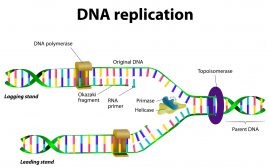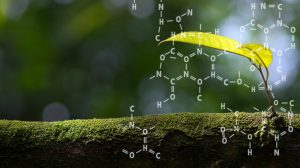Dye
a stain or colouring matter; a compound consisting of chromophore and auxochrome groups attached to one or more benzene rings, its colour being due to the chromophore and its dyeing affinities to the auxochrome. Dyes are used for intravital colouration of living cells, staining tissues and microorganisms, as antiseptics and germicides, and some as stimulants of epithelial growth. For individual dyes, see the specific names. Commonly but improperly used for radiographic contrast medium.
Origin: a.S. Deah, deag
Dictionary > Dye
You will also like...

DNA Structure & DNA Replication
DNA is a double helix structure comprised of nucleotides. A nucleotide, in turn, is made up of phosphate molecule, deoxy..

Animal Water Regulation
Animals adapt to their environment in aspects of anatomy, physiology, and behavior. This tutorial will help you understa..

Still Water Animals
Animals living in aquatic habitats have diversified and evolved through time. They eventually occupy ecological niches a..

Effect of Chemicals on Growth & Development in Organisms
Plants and animals need elements, such as nitrogen, phosphorus, potassium, and magnesium for proper growth and developme..

Respiration
The human respiratory system is an efficient system of inspiring and expiring respiratory gases. This tutorial provides ..

Control of Body Movement
Some of the body movements can be controlled at will, others cannot. The body has a motor program, which is the pattern ..

